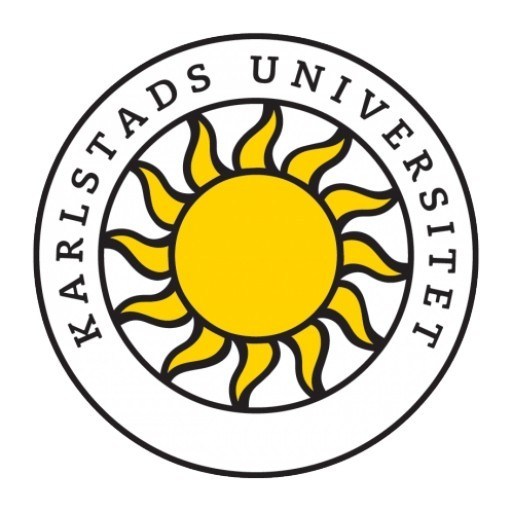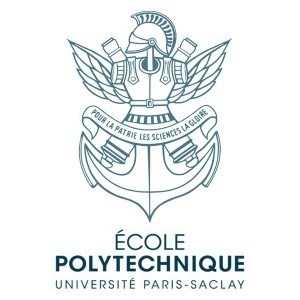Photos of university / #_londonu
The BSc in Information Security offered by the University of London is a comprehensive undergraduate degree designed to equip students with a solid understanding of the core principles, techniques, and challenges associated with protecting digital information in a rapidly evolving technological landscape. This programme covers a broad spectrum of topics, including cybersecurity fundamentals, cryptography, network security, system administration, and cyber law, providing students with both theoretical knowledge and practical skills necessary to address real-world security threats. Throughout the course, students explore the design, implementation, and management of secure information systems, gaining insights into risk assessment, vulnerability analysis, and incident response.
The curriculum is carefully structured to foster critical thinking and problem-solving abilities, encouraging learners to develop innovative solutions for complex security issues. Students engage with contemporary case studies and hands-on projects that simulate real industry scenarios, enhancing their practical experience and readiness for employment in various sectors such as finance, government, and private enterprise. The programme also emphasizes the importance of legal and ethical considerations in information security, ensuring graduates are prepared to operate responsibly within the digital environment.
Delivered through a flexible online learning platform, the BSc in Information Security allows students to study at their own pace while accessing a wide range of resources, including multimedia lectures, interactive forums, and up-to-date research materials. The University of London’s distinguished faculty, comprising experts in cybersecurity and related fields, provides mentorship and support throughout the programme. Upon successful completion, graduates will receive an globally recognised degree that opens doors to diverse career opportunities, including roles such as security analyst, cybersecurity consultant, network administrator, and information assurance officer. Committed to fostering lifelong learning and professional development, the university ensures that its graduates are well-prepared to tackle the ever-changing landscape of digital security and contribute meaningfully to safeguarding information infrastructure worldwide.
The Bachelor of Science (Honours) in Information Security program at the University of London offers a comprehensive and rigorous curriculum designed to equip students with the essential knowledge and practical skills needed to succeed in the ever-evolving field of cybersecurity. Throughout this program, students will explore a wide range of topics related to information security, including the fundamental principles of computer systems, network security, cryptography, risk management, and security protocols. The curriculum is carefully structured to balance theoretical understanding with hands-on practical experience, ensuring that graduates are well-prepared to address real-world security challenges faced by organizations today.
Students will begin their journey by studying foundational modules that cover the basics of computer systems, programming, and networking, establishing a solid groundwork for more advanced topics. As they progress, they will delve into specialized subjects such as secure system design, cybersecurity policies, ethical hacking, digital forensics, and incident response. Emphasis is also placed on understanding the legal and ethical considerations associated with information security, preparing students to act responsibly and within legal frameworks.
The program highlights the importance of current and emerging threats in the digital landscape. It includes modules on analyzing vulnerabilities, implementing security measures, and developing secure software solutions. Practical labs and assessments are integrated into the coursework to ensure students gain real-world experience in configuring security systems, conducting security audits, and responding to cyber incidents. Additionally, the program fosters critical thinking and problem-solving skills necessary for developing innovative security solutions and advising organizations on best practices.
Throughout their studies, students will have access to a range of resources, including online lectures, interactive tutorials, and industry-relevant case studies. The program also provides opportunities for networking with cybersecurity professionals through seminars and workshops. Upon successful completion of the degree, graduates will possess a strong understanding of the core concepts of information security and be equipped with the analytical skills required to design, implement, and manage effective security strategies within diverse organizational contexts.
This program is suitable for individuals interested in pursuing careers as cybersecurity analysts, security consultants, digital forensics experts, or information security managers. With the growing importance of protecting digital assets in a digitally connected world, the Bachelor of Science (Honours) in Information Security at the University of London offers an excellent pathway for students aiming to contribute to creating safer digital environments.
The Bachelor of Science in Information Security program at the University of London requires applicants to have completed a relevant secondary education qualification with strong academic performance in subjects such as mathematics and computing. Prospective students should demonstrate proficiency in English, typically through standardized tests like IELTS or TOEFL, meeting minimum score requirements specified by the university. The program is designed for individuals interested in developing a comprehensive understanding of information security concepts, including network security, cryptography, risk management, and cyber law. Applicants are expected to have a basic understanding of computer systems and programming languages, as well as analytical and problem-solving skills. The admission process involves submitting an online application form, academic transcripts, proof of English proficiency, and a personal statement outlining the applicant's motivation and interest in the field. Additionally, some applicants may be required to attend an interview or provide references. Once admitted, students must complete a series of core modules covering fundamental topics such as computer security principles, ethical hacking, security management, and digital forensics. The program also offers elective modules that allow students to specialize further in areas like cryptography, penetration testing, or information assurance. To graduate, students must successfully pass assessments for each module, including written examinations, coursework, and practical projects. The program encourages practical experience through lab work, simulations, and participation in cybersecurity competitions. It is built to equip students with both theoretical knowledge and practical skills necessary for careers in cybersecurity, governmental agencies, private sector organizations, and consultancy firms. The curriculum also emphasizes current industry standards and best practices, aligning with professional certification requirements such as CISSP and CEH. Students are expected to engage in continuous learning and professional development during their studies and after graduation to keep pace with rapidly evolving security threats and technological advancements. The university provides academic support services, online resources, and access to industry networks to enhance student learning and employability. Upon successful completion of the program, graduates receive a Bachelor of Science degree in Information Security, which qualifies them for entry-level positions or further postgraduate study in cybersecurity disciplines.
The University of London offers a range of funding options to support students pursuing their Information Security programmes. Tuition fees for undergraduate and postgraduate degrees vary depending on the specific course and mode of study, with some programs offering flexible payment plans to accommodate students' financial circumstances. Scholarships and bursaries are available for eligible students, including merit-based awards and financial need-based support, which can significantly reduce the overall cost of study. Students are encouraged to explore external funding sources such as government loans, grants, and sponsorships, which may be available depending on their country of residence and personal circumstances. The university also provides advice on financial planning and managing study expenses through its support services. For distance learners, the cost of study typically includes fees for course materials, online access to learning platforms, and examinations, with options for installment payments. Additionally, the university occasionally partners with organizations to offer sponsored places or employer-funded schemes that enable working professionals to undertake advanced studies in Information Security while continuing their employment. International students should consider additional costs such as health insurance, travel, and accommodation, although many find that engaging in online learning reduces some of these expenses. Enrollment periods are scheduled throughout the year, and students are advised to apply early to secure their preferred payment arrangements. The university maintains transparency regarding tuition fees, providing detailed breakdowns on its official website, along with guidance on how to access financial assistance. Overall, the financial support infrastructure at the University of London aims to make higher education in Information Security accessible to a diverse student body by offering comprehensive funding options tailored to the needs of students worldwide.
The University of London offers a comprehensive programme in Information Security designed to equip students with the essential knowledge and skills required to protect information systems in various organizational settings. This programme provides a solid foundation in the core concepts of cybersecurity, including network security, cryptography, risk management, and the legal and ethical considerations associated with information security practices. It is intended for students seeking to develop expertise in safeguarding digital assets against evolving cyber threats, ensuring data integrity, confidentiality, and availability.
Students will explore various defence mechanisms used in protecting computer networks and systems, learn about security policies and procedures, and gain practical skills in implementing security solutions. The curriculum emphasizes both theoretical understanding and practical application, incorporating case studies, simulations, and hands-on projects that reflect real-world challenges faced by security professionals. Throughout the programme, students are encouraged to develop critical thinking skills to analyze security risks and implement effective mitigation strategies.
The programme is delivered through a combination of online learning modules, allowing flexibility for students to study at their own pace while interacting with instructors and peers via virtual classrooms and discussion forums. This mode of delivery provides accessibility to a global student body and accommodates diverse professional backgrounds. Additionally, the programme often includes opportunities for internships and practical work experience, enabling students to apply their knowledge in real-world environments and build professional networks.
The degree programme is suitable for those interested in a career in cybersecurity, information assurance, or related fields. Graduates of this programme are prepared to pursue roles such as cybersecurity analyst, security consultancy, network administrator, or information security officer. The programme aligns with current industry standards and prepares students for professional certifications in cybersecurity, such as CISSP, CISM, and CompTIA Security+.
Admission requirements typically include a strong academic background or relevant work experience in related fields, with specific prerequisites varying by the programme intake year. The programme seeks to foster a diverse learning environment where students from various disciplines can come together to deepen their understanding of information security issues and solutions.
Overall, the University of London’s programme in Information Security offers a rigorous, flexible, and comprehensive pathway to acquiring the knowledge needed to succeed in the dynamic and increasingly critical field of cybersecurity. Graduates leave equipped with both theoretical insights and practical skills suitable for addressing current and future security challenges in a digitally connected world.









